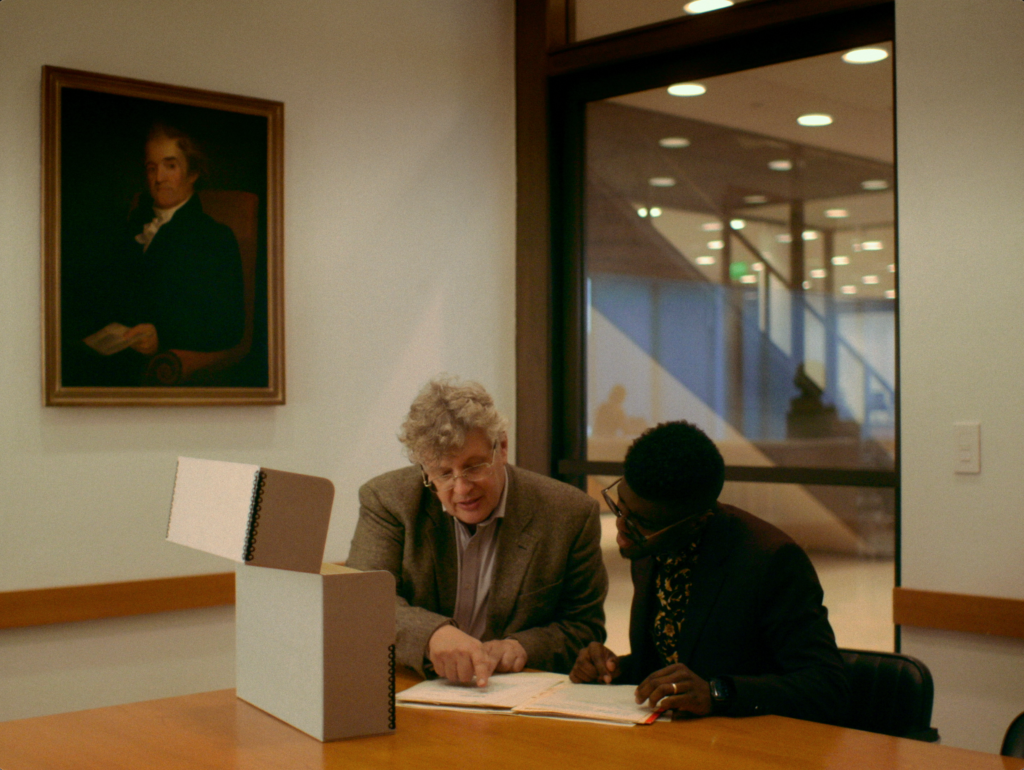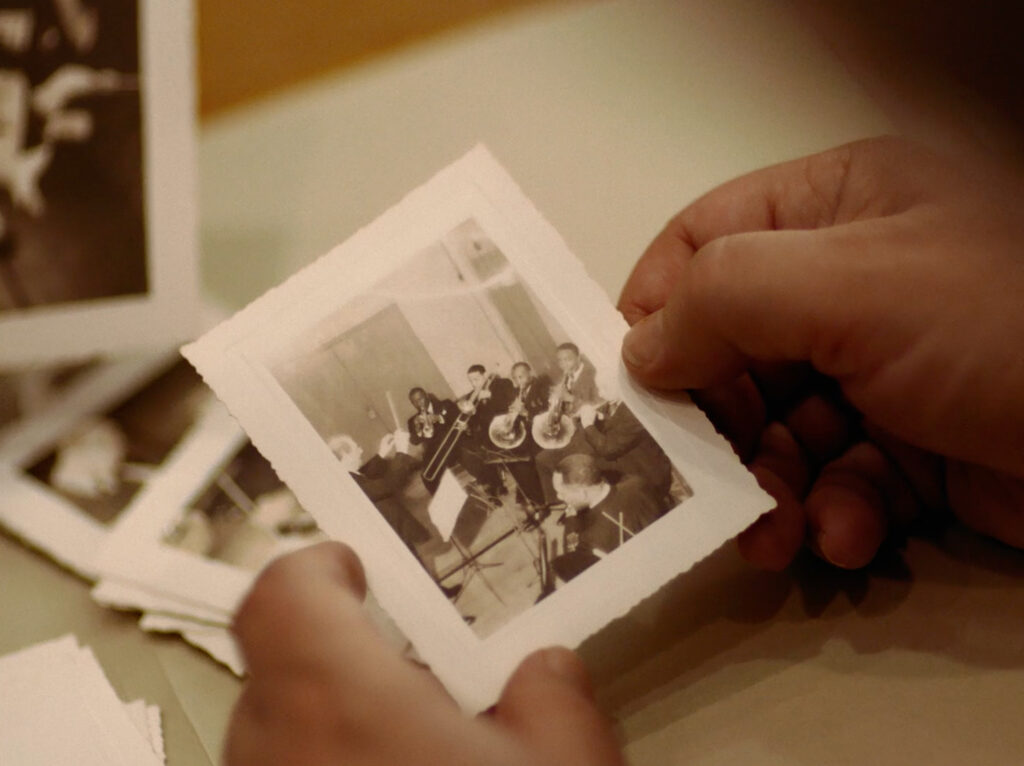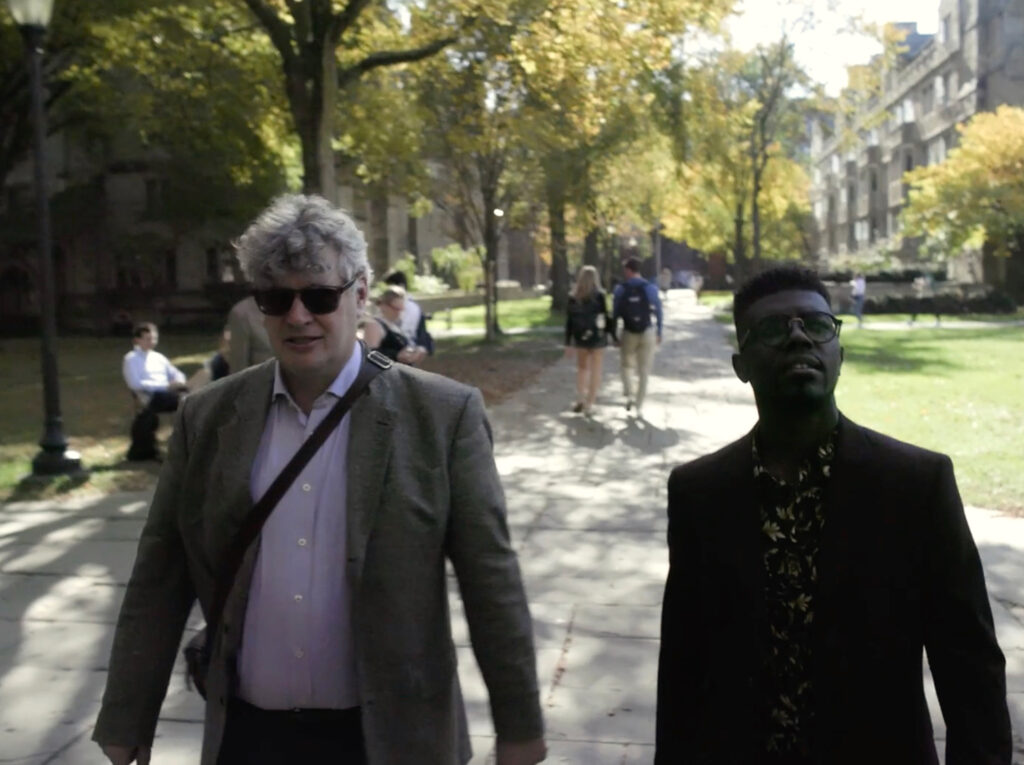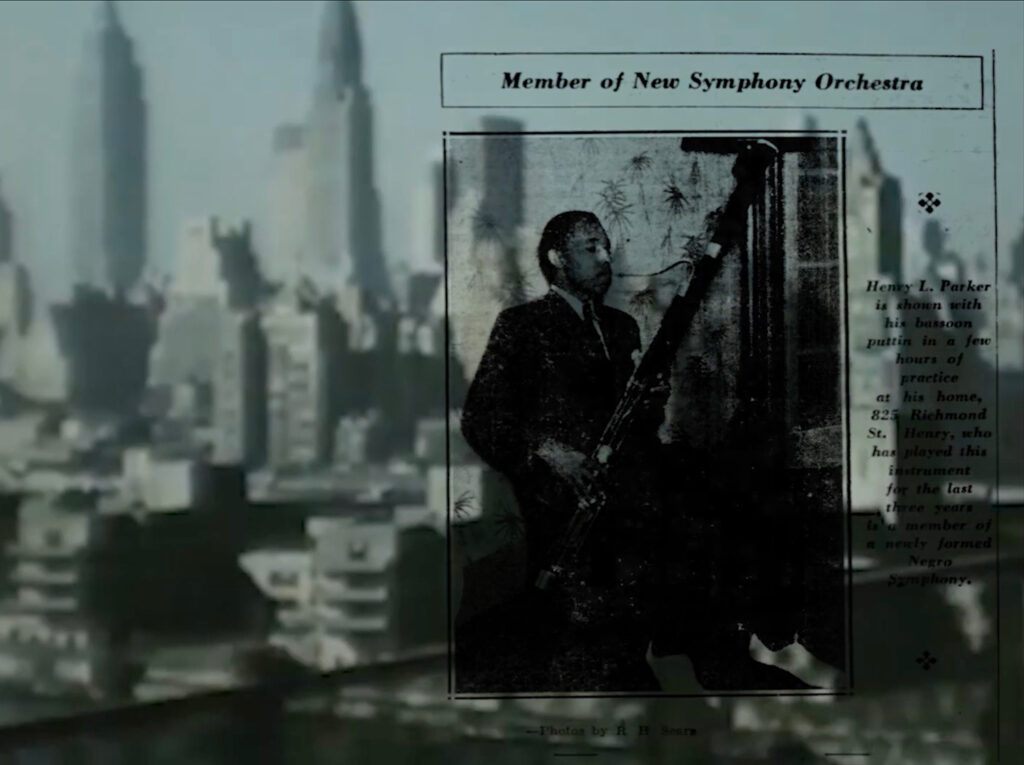To lift the stories of the Negro Symphony Orchestra musicians out of oblivion, Kyle Walker teams up with conductor Alexander Walker of the Royal Academy of Music in London, and together, they search for the Orchestra’s traces. Alex is a no-nonsense Brit and a single dad dedicated to discovering unjustly forgotten composers. He transcribes a manuscript for Ignatz Waghalter’s “New World Suite” unearthed from an attic in Queens, New York. The piece was composed for the Orchestra and set to premiere in December 1939 at Carnegie Hall. The systemic racial bias of the era quashed the dream of this big debut.
Unflinching and driven, Kyle recognizes that the archives are thin, with few oral testimonies. Still, he believes these musicians “committed themselves to the radical vision that the classical stage should be open to everyone and music belongs to all of us.” Determined that their memory will not remain hidden from history, Kyle and Alex decide to finish the Orchestra’s quintessential project nearly 85 years later by staging the “New World Suite” at Carnegie Hall with an orchestra of color.
They throw themselves into what seems like a hopeless quest to find living relatives of the Orchestra members and any witnesses or supporters. Kyle hires a private investigator who quips, “I don’t think I’ve looked for anybody this dead before,” but promises to do what she can. With her help, Kyle eventually meets the son of piano and bassoon prodigy, Henry Levy Parker, the youngest member who would later graduate from Harvard and become a civil rights activist in the South. Kyle also finds three grandsons of violinist Mildred Franklin Howard—the NSO concertmaster at a time when such a leadership role was unheard of for a woman in a mixed-gender ensemble.
It becomes clear to Kyle that the NSO validated the musicians’ and their families’ belief in the music and in themselves. Few Black musicians in their time had access to a conservatory education. Symphony auditions weren’t held behind a curtain as they are today, and prejudice and sexism were out in the open. The NSO promised a full-time job as a classical musician instead of a precarious existence, taking any gig that paid while holding down a day job to make it through the dry spots. They discuss their findings with NPR host and author, Celeste Headlee—the granddaughter of the dean of Black composers, William Grant Still. Celeste realizes that her grandfather, like many key figures of the Harlem Renaissance, was engaged with this project, too.


Aaron and Afa Dworkin are pioneers of classical “incubator” ensembles of color. They help Kyle and Alex assemble an orchestra to perform the “New World Suite” at Carnegie Hall. As they rehearse, Alex and Kyle unveil the challenges that non-white orchestra musicians face today. What are the roadblocks and why do they remain? We hear from Tania León, Wynton Marsalis, Esperanza Spalding, Sheku and Isata Kanneh-Mason, Angela Brown, Kathleen Battle, Alicia Keys, and Jon Batiste, who share their own stories of hard-earned triumphs and the challenges of the present situation.
As their research nears completion, Kyle and Alex discover that the news reports about the Orchestra stopped suddenly at the end of 1939: no tour schedule, no reviews of their debut. Instead, the Orchestra’s director, Ignatz Waghalter, resigns. What was behind this implosion? Did the donors not come through with enough funds to get the Orchestra off the ground? Was the persistent obstacle of racial prejudice in forms great and small too much for the NSO to overcome?
In the future, how can we make the history and legacy of Black classical musicianship visible so that the generations to come can better understand that it did not begin today and so that young musicians of color can find inspiration in their forbearers? How can we chronicle the fact that African American classical musicians have always been part of American music?
The rest of the world has just been blind to their presence.
The story culminates with the first live performance of the “New World Suite” at Carnegie Hall:
Kyle is at the grand piano, a warm spotlight outlining his silhouette. The stage is filled with musicians of color. They are ready to perform – comfortable, belonging here. It is as if the Negro Symphony Orchestra had suddenly been transported in time, their dream premiere delayed by almost a century.
Alex steps out on stage to applause. He remains quiet, focused. Kyle adjusts his glasses. Alex raises his baton, holds it in a moment of long-awaited suspense, and unleashes the powerful “New World Suite” upon us.


